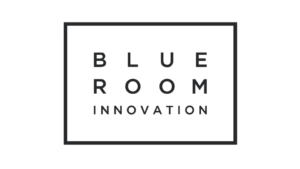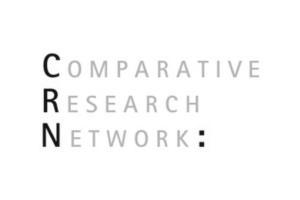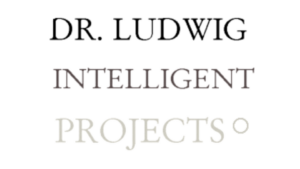Partners
Our aim is to bring consciousness concerning consumption using a game to the people in our local settings. The game should be usuable as a tool of adult education. So each partner made a need assessment in their choosen local community, in order to reach the people there with target-group-specific game principles. This could mean that the game should treat specific identified needs of local people or it should be applicable by adult educators and fit to their teaching approaches. So let us talk here about the choosen communities and their needs.
XAMK, South-Eastern University of Applied Sciences, Finland (Kouvola).
XAMK approach is to reach the general public in Kouvala, Finland, by using the activities of Parik Foundation and providing them as a new tool the game. Parik itself provides employment, rehabilitation, and training services based on individual needs. The foundation aims to enhance customers’ work abilities, well-being, and inclusion. The Parik community is actively engaged in conscious consumption and the circular economy, integrating these themes into their daily activities. They operate a recycling shop and station and offer jobs related to sustainable development. Gamification, specifically serious games, is seen as a valuable tool for supporting learning, although not suitable for everyone. However, a game focusing on sustainable development and conscious consumption is considered an interesting alternative. Board games, in particular, are seen as effective for exploring these themes within their work. The project’s goal is to introduce new work methods that support learning about conscious consumption, including understanding the circular economy and the life cycle of goods. Additionally, they seek to provide information to aid sustainable purchasing decisions and avoid unnecessary purchases. Reliable and accessible information is crucial for facilitating learning and influencing attitudes towards consumption. They hope to teach how conscious consumption can positively impact personal finances. Board games are considered an excellent method for promoting conscious consumption due to their collaborative nature, allowing for shared experiences and peer learning. People can learn from each other when they engage in activities together, and the behavior of others can influence their attitudes.
Fundacja Otwarty Plan, Poland (Krakow).
The Polish partner focuses on a district of the city of Krakow: Nowa Huta. They practice a cooperation with local eco-organisations and cultural centers. Originally Nowa Huta was a workers city for the workers of a metallurgical plant. But nowadays beside the desendands of the workers new residents, migrants from everywhere, are living there. Otwarty Plan sees there a lot of opportunities to reach people concerning our topic. The needs assessment showed that there are some disadvantaged communities which could be adressed to teach them sustainable consumption patterns especially now when prices are raising due to inflation. In winter 2022/2023 a dilemma appeared how to spent a families budget: heating a flat or buy food or clothing. So everyday choices of the people would be in the focus of Otwarty Plan: what will this mean for the game and what impact could it have?
BLUE ROOM INNOVATION SL, Spain (Girona, Barcelona).
Blue Room Innovation identified El Raval as a housing district in Barcelona for classes with less purchasing power where people need to be teached about consious consumption. The community of El Raval consist mostly of migrants and especially younger migrants. To teach these young migants something about conscious consumption seems to be a challenge as they have no jobs or jobs with less salaries, the rents and prices are high, they are difficulties to teach because of prejudices and stigmas and good practices and actions are not promoted enough or at all in that area. BLUE ROOM INNOVATION identified a lack of special eduction on the topic of conscious consumption and therefore no consciousness or knowhow about it. This results in the need for long life learning to which a game to be used in the area by educators could contribute.
ela Erasmus Learning Academy, Italy (Bologna).
ela identified educators and teenagers (13 to 19 years old) as their target group. Ela believes that teenagers are the ones to change the world and they are the ones who have to live with the consequences of todays activities and decissions in the future. That is why ela thinks they should be teached how to be more conscious about their lifestyle. A game would have to make it easier for educators to reach teenagers as they see difficulties to reach them concerning a change of lifestyle. Teenagers see the world as it is and that makes it difficult to anticipate the need of not adapting this but live in another way. Consequently educators need practical examples and show them consequences of wrong consumption like climate change. From a game ela would expect to show teenagers that green issues are not something abstract or distant. To reach teenagers it would be needed to not make them feel guilty and that they understand the timeframe for their own involvement to give them security that even though that there is not much time left to find solutions they are not yet lost. There is a need for them to be convinced that the change of behaviour is not futile.
Comparative Research Network e.V., Germany (Berlin).
Comparative Research Network sits in Wedding, a part of Berlin where the percentage of migrants is far above average. Comparative Research Network already knows Wedding very well as descendants from the original German population works there together with migrants. They are confronted with an unwanted behaviour that concerning the consumption of food prices count more than quality as mayn people do not understand the value of food and health options. People are generally willing to think about conscious consumption but the do have just little or no knowhow. So a game should also make them learn facts to enable them to decide. This would need simple language for complicated topics and overcome or soften questionable mindsets: “games are just for children“ and „Status and convenience is mrore important than conscious decissions concering consumption”. In winter 2022 / 2023 energy became a topic where the people in Wedding became open to listen about due to the high prices.
Ludwig Intelligent Projects GmbH, Germany (Bonn).
Dr. Ludwig Intelligent Projects focuses on the western areas of the city of Bonn. Within this area live a lot of different people. Disadvantaged people, middle class people, rich people, german nationals along side people coming from many countries including refugees.
Adult nonformal education is already offered to these people but there is no clear vision of targets what to teach. Education or events wanted has to come from the people or groups or delivered from outside (like from organisation with certain focuses on like
food savers etc.).
Furthermore different groups react in different ways on education offers mostly depending on their social group: People visit courses or events they do not really need (Lebensmittelretter: Engaged people who already know the problem and want to just talk about it). Or people want to got to courses or events if it brings them a financial incentive and other people do what is opportune to do, especially when they do have children.
The percentage of people per group varies from part to part of the city but there is in common, that these people are meeting in local shops, at the sports clubs or in public areas like parcs. At best the game as a tool to teach people about conscious consumption would bring all these different groups together and would contribute to balance their opinions and behaviours.
EURO-NET, Italy (Potenza).
Euro-net made an interesting selection of their communities. They did not look at a certain geographical area within their city but they defined groups of people as communities. What does this mean? It means that the communities are formed by the pupils or adult students who are already addressed by trainers / teachers and by activists or stakleholders. The advantage of this approach is that the channel to the people to teach them about conscious consumption using the game is already open. Concrete people (Trainers and stakeholders etc.) can use the game with their participants. EURO-NET did find out that a big variety of education means would be needed to establish consciousness amongst the adressed people which would have to be played on a path that goes from family to school, from research to work which requires support in every social sphere.
Therefore the game should be a tool that use unconventional learning with creative and artistic approaches to support stakeholders and trainers, who are personally known by EURO-NET.








